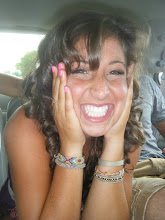Tuesday, November 30, 2010
"The Body" by Stephen King
Wednesday, November 17, 2010
"Once Upon a Time"
"Eveline"
"A Worn Path"
"Miss Brill"
Although the story was short, making it more enjoyable than some of the other short stories we have read, I did not really understand some of the things occurring thruoghout the story. I do not understand the signficance of the "ermine to toque." I don't even understand what it is. Also, I do not understand why Miss Brill thinks she heard something crying in the last line of the story. There seems to be a hidden message, and I am clearly not getting it.
Wednesday, November 10, 2010
"Hunters in the Snow"
"Bartleby the Scrivener"
"Everyday Use" continued!!
"Everyday Use"
Wednesday, November 3, 2010
Relating Edie to Modern Teenage Girls
"A Rose for Emily"
Tuesday, November 2, 2010
Interpreter of Maladies
"How I Met My Husband"
(I don't know if I'm supposed to tell you or not, but I am answering question #2 in this post!)
In "How I Met My Husband," I was a little surprised by the ending because I found the plot pretty predictable at parts; however, most of the time my inferences were proved wrong in the story. Throughout the beginning and the middle, I knew something was going to happen between Edie and Chris Watters...I was just waiting for it! However, I kept forgetting the age difference between the two of them, so now I am a little grossed out by Mr. Watters. Perve. Anyway, the climax was the intimate scene between Edie and Chris in the tent, which was predictable, but the denoument was the misleading part of it all. I thought for sure they were going to run away together! It's okay though, I didn't like Chris. So, while she waited for the letter by the mailbox everyday (definitely similar to the scene from The Notebook!) I caught on to the fact that he was never going to write her; yet, she still waited. Maybe it was my "blind optimism" (in the words of T-SWIFT!) that kept me hoping she would not get heart broken in the end. But when Carmichael showed up, the plot was no longer misleading. the entire time I thought the "husband" she was going to meet and marry in the story was Chris; I was not expecting Carmichael.
TODAY my blog will feature some videos. (Only because I enjoy watching them, too!)
This song reminds me of this story, too! I'm obsessed with Taylor Swift these days. This song is definitely worth your time. (It is written to John Mayer.)
http://www.youtube.com/watch?v=UF3u1q_T8aw

